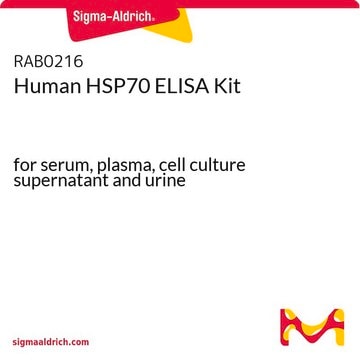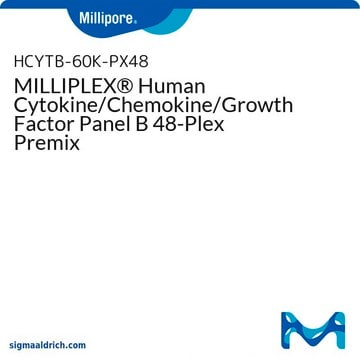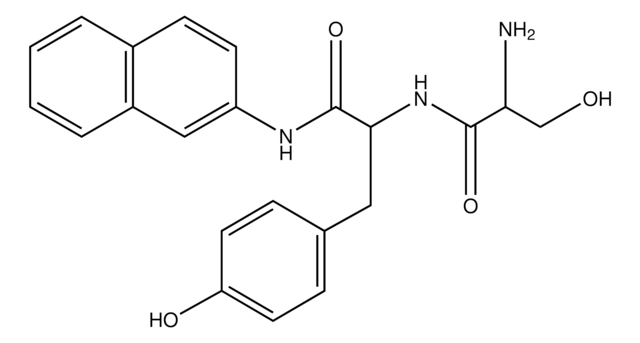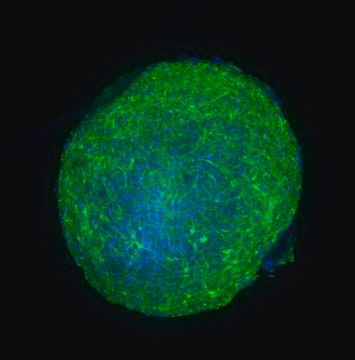H0273
Monoclonal Anti-Heat Shock Protein 25 antibody produced in mouse
clone IAP-28, ascites fluid
About This Item
Recommended Products
biological source
mouse
Quality Level
conjugate
unconjugated
antibody form
ascites fluid
antibody product type
primary antibodies
clone
IAP-28, monoclonal
mol wt
antigen 25 kDa
contains
15 mM sodium azide
species reactivity
chicken, bovine, frog, rabbit, guinea pig, turkey, Drosophila, mouse, rat, human
technique(s)
immunohistochemistry: suitable using frozen sections of chicken gizzard smooth muscle
indirect ELISA: suitable
indirect immunofluorescence: suitable using formalin-fixed, heat-shocked cultured chick embryo fibroblasts
radioimmunoassay: suitable
western blot: 1:500 using turkey gizzard extract
isotype
IgG1
UniProt accession no.
shipped in
dry ice
storage temp.
−20°C
target post-translational modification
unmodified
Gene Information
human ... HSPB1(3315)
mouse ... Hspb1(15507)
rat ... Hspb1(24471)
Related Categories
General description
Specificity
Immunogen
Application
- immunoblotting
- enzyme linked immunosorbent assay (ELISA)
- radioimmunoassay (RIA)
- immunocytochemistry
- immunohistofluorescence assay
- immunopurification
Biochem/physiol Actions
Physical form
Storage and Stability
Disclaimer
Not finding the right product?
Try our Product Selector Tool.
Storage Class Code
10 - Combustible liquids
WGK
nwg
Flash Point(F)
Not applicable
Flash Point(C)
Not applicable
Certificates of Analysis (COA)
Search for Certificates of Analysis (COA) by entering the products Lot/Batch Number. Lot and Batch Numbers can be found on a product’s label following the words ‘Lot’ or ‘Batch’.
Already Own This Product?
Find documentation for the products that you have recently purchased in the Document Library.
Our team of scientists has experience in all areas of research including Life Science, Material Science, Chemical Synthesis, Chromatography, Analytical and many others.
Contact Technical Service








